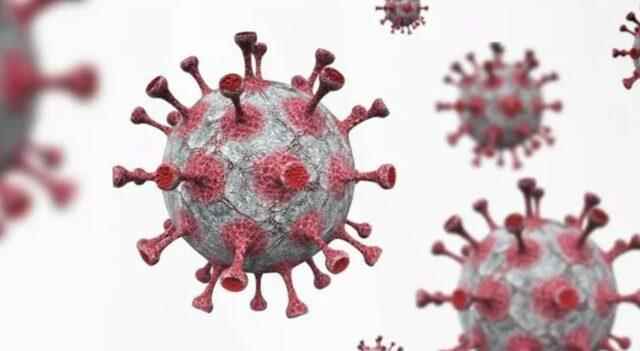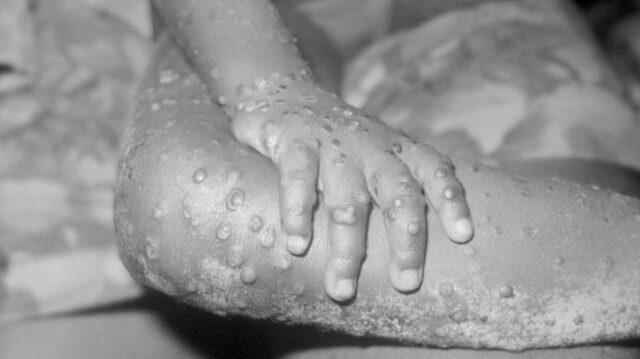Monkey pox was seen in many countries such as Turkey, Spain, England, USA and France. Experts state that there is a potential for the spread of monkeypox, which is transmitted by contact. Health Minister Fahrettin Koca announced that the number of cases detected in Turkey so far has increased to five. BBC provided information about monkey pox.
WHAT ARE THE SYMPTOMS OF MONKEY FLOWER?
- The first symptoms of the virus are fever, headache, itchy rash, back pain, muscle pain and weakness.
- After the fever subsides, a rash may develop that usually starts on the face and then spreads to other parts of the body, most often the palms and soles.
- The rash, which can be very itchy, changes to form a crust and disappears after going through different stages. Wounds can leave scars.
- According to the Ministry of Health, rashes appear on the face in 95 percent of cases and on the hands and feet in 75 percent.
- The virus usually goes away on its own and the illness can last 14 to 21 days.
- However, since the incubation period is long, those who carry the virus can transmit it unknowingly in this process. According to the Ministry of Health, the incubation period generally varies between 6-14 days after contact.
HOW IS IT TRANSMITTED?

The virus can spread through close contact with another person who has monkeypox. The virus can enter the body through skin abrasions, respiratory tract, eyes, nose or mouth. It can also be transmitted through direct contact during sexual intercourse. The virus can also be spread through infected animals such as monkeys, rats and squirrels, or by contact with objects such as bedding and clothing. According to the monkeypox guide published by the Ministry of Health, the virus is most common in men who have sex with men. Spain also announced that 98 percent of the cases in the country were men who had sex with men. Although the number of women and children infected with the virus has increased worldwide, men remain the largest group. Men account for 99 percent of cases in the UK. On the other hand, WHO warns that women and children can also suffer from the disease.
WHAT IS THE DANGER?
Most cases are mild in those who have the virus. The virus sometimes resembles chickenpox and disappears on its own within a few weeks. However, sometimes it can be more severe. It was previously reported to cause deaths in West Africa. According to WHO data, between 13 May and 22 July, approximately 8 percent of 12 thousand people whose tests were positive in Europe and Central Asia had to be hospitalized. No one died from the virus between these dates. But at the end of July, Brazil and Spain became the countries with the first deaths from monkeypox outside of Africa. According to data from Spain, 3.2 percent of the 3,750 patients in the country had to be hospitalized.
WHAT IS THE TREATMENT OF MONKEY POLO?
There is no cure for monkeypox, but outbreaks can be controlled by preventing the spread of the virus. Vaccination against smallpox was proven to be 85 percent effective in preventing monkeypox. The vaccine is still available. Those in the risk group for monkeypox are classified as follows: “Those who have multiple partners, have group sex, go to sex places, or have recently had a sexually transmitted bacterial disease.”
CAN IT BE A PANDEMIC?

The risk of a pandemic in the UK is low, according to public health experts. Professor of molecular virology at the University of Nottingham. “The fact that only one in 50 people who come into contact with a person infected with monkeypox is infected shows how weak the contagion of the virus is,” says Jonathan Ball. “It would be wrong to think we are on the verge of a nationwide epidemic.” Doctor Nick Phin, Deputy Director of the National Infection Service of Public Health England (PHE), states that monkeypox does not spread easily between people, so the risk of an epidemic is very low.
WHAT ARE ADVICE ON THE DISEASE?
The World Health Organization (WHO) has issued several recommendations for health professionals, government administrators and the general public. Noting that the biggest risk group is men who have sex with men, the organization advises these people to limit the number of partners they have together and the frequency of sexual intercourse for a while. People who think they have the virus are requested to isolate. “Remember the stigma of the emergence of HIV/AIDS, and remove any prejudices or concerns that may cause patients to hesitate,” the WHO advises healthcare professionals. The organization advises government officials to work on vaccines in international cooperation:
“Countries must abide by the principle of equality. Vaccines and antiviral drugs must be made available to those who need them most.
HOW IS INSULATION PROVIDED?
While in some countries patients are not hospitalized unless they need it, the Ministry of Health in Turkey demands that those infected be hospitalized and isolated. According to the guide on the Ministry’s website, isolation rooms must be single-person rooms with a bathroom-toilet. While the entrances and exits to the rooms are limited, patient visits are not allowed, and companions are not accepted, except in mandatory cases. In obligatory cases, it is recommended that people who were born before 1980 and who have smallpox vaccination should accompany them.
